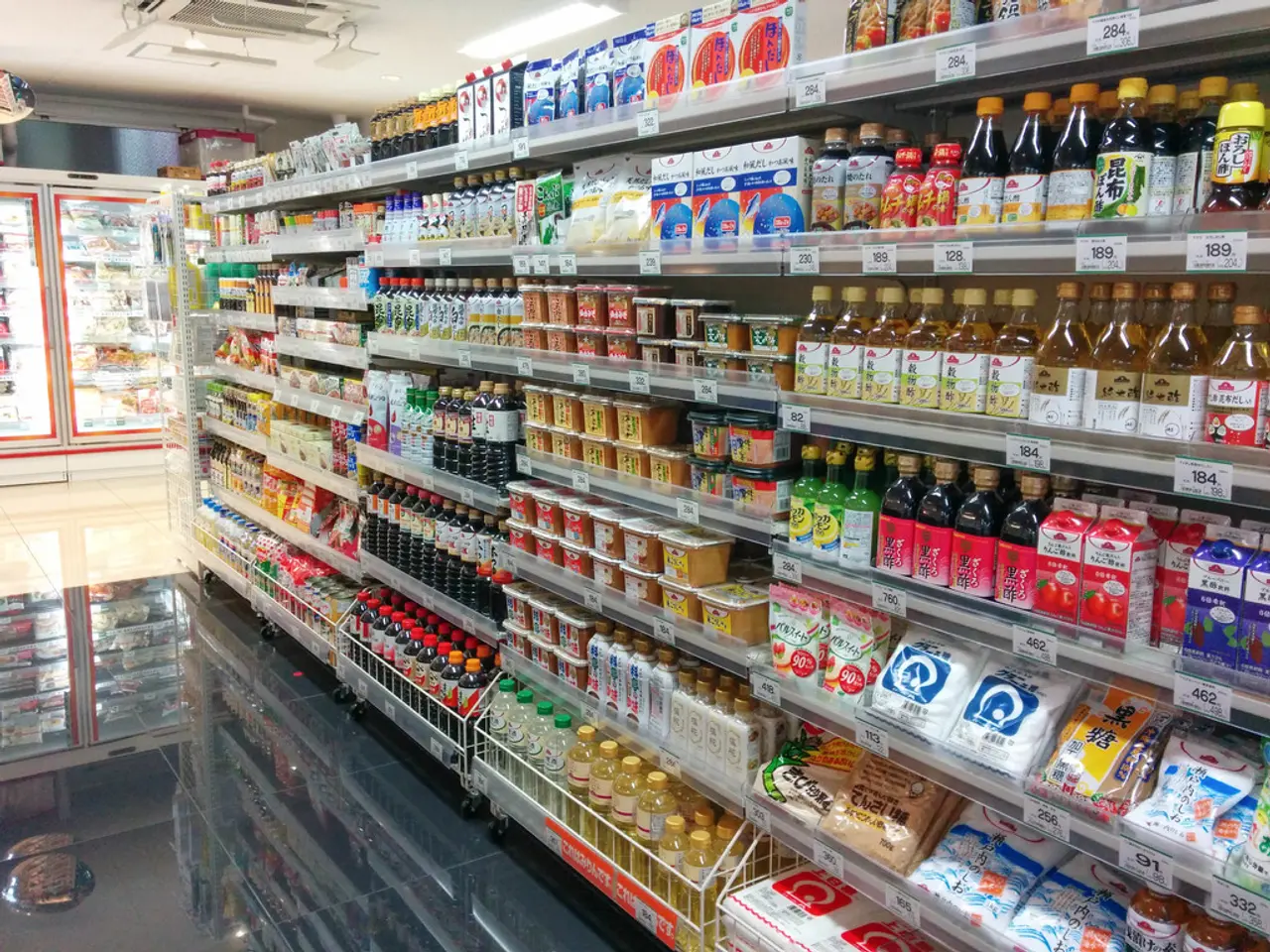Stock prices in Seoul close below average, anticipating essential US economic figures
On August 19, 2025, the KOSPI, Seoul's stock market, experienced a modest decline of 0.46%, closing at 3162.79. This dip in the market was influenced by a negative sentiment, primarily due to losses in major tech shares.
The decline mirrored the US market weakness, partly driven by inflation concerns. Although the direct influence of US inflation data on August 19 is not explicitly detailed, US inflation expectations and Federal Reserve communications in preceding months indicated persistent inflation concerns that pressured global markets. These inflationary pressures often impact emerging markets like South Korea by affecting investor risk appetite and currency valuation.
Regarding US tariffs on goods imported from China, earlier impacts in 2025 had contributed to initial KOSPI volatility, with a sharp fall in April linked to tariffs and a subsequent rebound through July after easing concerns. By August, any lingering tariff impact appeared overshadowed by technology sector weakness and global risk sentiment rather than new tariff measures.
In addition to the KOSPI, other key players in the market also saw changes. Samsung Electronics, a major competitor to Samsung Electronics, surged 4.09% to 267,000 won. On the other hand, Samsung SDI, the No. 2 battery firm, advanced 3.21% to 225,000 won. However, tech companies like LG Energy Solution, a leading battery maker, experienced a gain of only 2.77% to 389,000 won.
The local currency, the Korean won, also saw a change, rising against the US dollar. At 3:30 p.m., the Korean won was quoted at 1,388.00 won against the greenback, a 1.6 won increase from the previous session.
Traders were also keeping a close watch on key inflation data for clues on the future path of the Federal Reserve's interest rate policy and whether the Aug. 12 deadline for talks on US duties on Chinese imports would be extended.
In Seoul, other significant players in the market saw mixed results. Korea Electric Power Corp., a state-run utility, shed 1.89% to 39,000 won. HD Hyundai Heavy Industries, a leading shipbuilder, lost 0.54% to 464,000 won. In contrast, POSCO Holdings, a leading steelmaker, jumped 3.72% to 306,500 won.
Institutions and individuals sold a net 214.27 billion won and 142.42 billion won worth of stocks, respectively, on the KOSPI. However, foreigners bought a net 216.86 billion won of stocks on the KOSPI, indicating a positive foreign investment sentiment despite the market dip.
Trade volume on the KOSPI was light, with 302.01 million shares worth 10.23 trillion won ($7.3 billion) traded. Decliners outnumbered gainers, with 578 stocks falling and 298 rising. Hanwha Ocean, the shipbuilding unit of Hanwha Group, tumbled 9.09% to 107,000 won.
In summary, the KOSPI experienced a modest decline on August 19, 2025, influenced by losses in tech stocks and broader global market dynamics, including US inflation concerns. US tariffs on Chinese goods had affected the Korean market earlier in the year but appeared less evident on August 19.
The decline in the KOSPI was not solely attributed to US tariffs on Chinese goods, as it was primarily influenced by losses in major tech shares and broader global market dynamics, including US inflation concerns. Foreign investors, despite the market dip, showed a positive sentiment towards investing in South Korean businesses.




